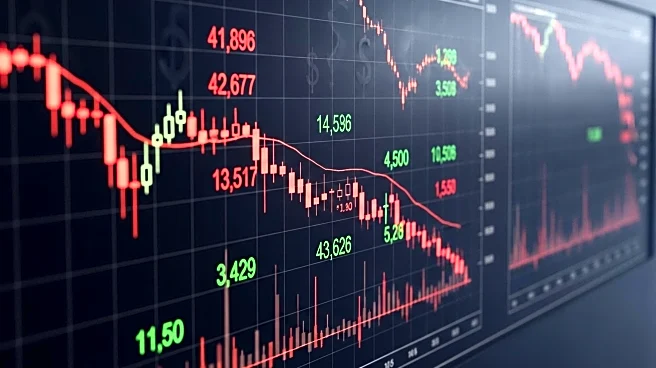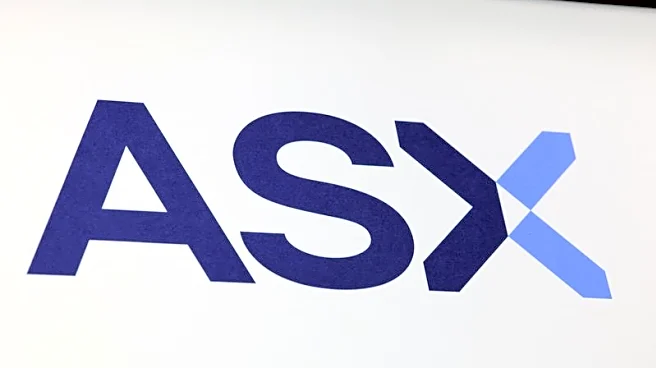What's Happening?
The U.S. government officially entered a shutdown after lawmakers failed to agree on a funding bill, leading to a decline in stock market futures. The Dow fell by 40 points, the S&P 500 by 0.4%, and the Nasdaq Composite by 0.6%. Historically, the stock market has shown resilience to government shutdowns, with the S&P 500 typically gaining in the months following such events. However, sectors reliant on government contracts, such as defense and healthcare, may experience more sensitivity to the shutdown. The shutdown also coincides with a strong September for the stock market, with the S&P 500 posting its best September gains since 2010.
Why It's Important?
The government shutdown introduces uncertainty into the market, potentially affecting sectors dependent on government contracts. While the broader market has historically weathered shutdowns, the current economic climate, marked by concerns over economic data availability and Federal Reserve interest rate decisions, could amplify the impact. Investors are advised to focus on other market drivers, such as corporate earnings and Federal Reserve policies, which continue to support market growth. The shutdown may also spur volatility, particularly if it delays key economic reports that inform monetary policy decisions.
What's Next?
The shutdown's duration and resolution will be closely monitored, as prolonged disruptions could exacerbate economic uncertainty. Investors and policymakers will need to navigate the lack of federal economic data, potentially relying more on private sector sources. The Federal Reserve's future interest rate decisions may be influenced by the shutdown's impact on economic indicators. Stakeholders will watch for any political developments that could lead to a resolution and the resumption of government operations.











